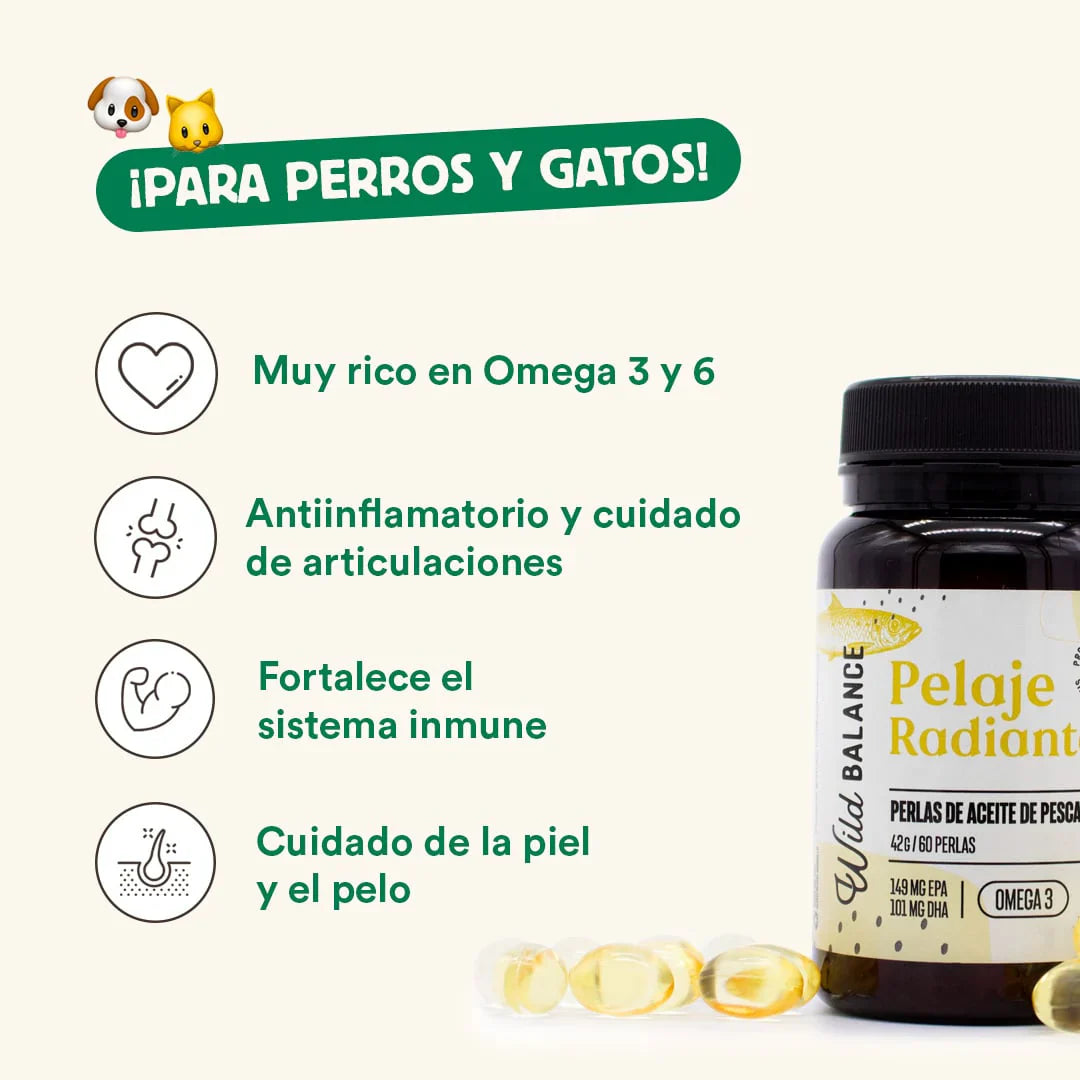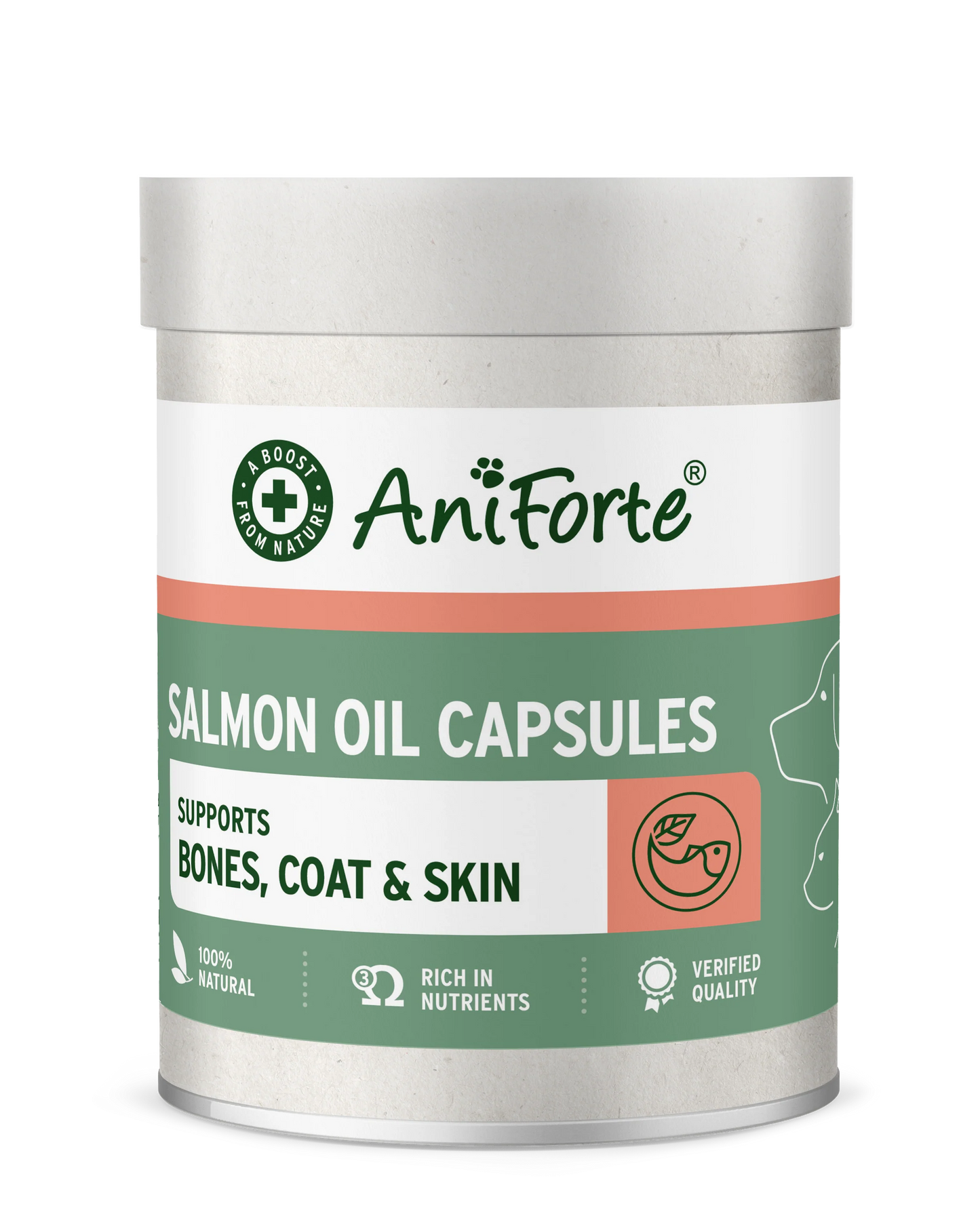Just like for humans, Omega 3 is a key component of a canine diet. Today we'll talk about why you should consider including Omega 3 in your boss's diet.
What is Omega 3 and why is it important?
Omega 3 is a type of polyunsaturated fatty acid found primarily in marine sources such as fish, as well as certain plants (although dogs and cats cannot assimilate Omega 3 from plant sources such as Alpha-linolenic acid (ALA) . Omega-3 is not only essential for humans, but also plays a crucial role in the health of dogs. Omega-3 fatty acids can help reduce inflammation and promote the overall health of our furry friends, as they work antagonistically to Omega-6, reducing and controlling inflammation in the body.
Benefits of Omega 3 for your dogs
1. Skin and coat health
One of the most notable benefits of Omega 3 for dogs is its ability to improve skin and coat health. Dogs fed a diet rich in Omega 3 tend to have shinier coats and fewer skin problems, such as allergies or irritations. This is due to Omega 3's anti-inflammatory properties, which help soothe irritated skin.
2. Joint support
As our dogs age, it's common for them to experience joint problems. Omega-3 fatty acids can help reduce joint inflammation, which can be especially beneficial for breeds prone to hip dysplasia or arthritis. A study published in the Journal of the American Veterinary Medical Association indicates that dogs that consume omega-3 fatty acids have fewer pain symptoms and greater mobility.
3. Cardiovascular health
Omega-3 fatty acids are also known for their positive effects on heart health. They help maintain healthy cholesterol levels and may reduce the risk of heart disease. A Cornell University study showed that omega-3 supplementation in older dogs improved heart health.
4. Strengthening the immune system
Omega-3 fatty acids can contribute to a more robust immune system, helping your dog fight off illness and stay healthy. This is especially important for dogs whose immune systems may be compromised by stress or illness.
How to include Omega 3 in your dog's diet?
There are several ways to add omega-3s to your pet's diet. You can opt for foods containing fish, such as salmon or herring, or consider fish oil supplements , which are an excellent concentrated source of omega-3s.
Omega 3 dosage as a supplement
The Omega 3 dosage is 100 to 150 mg of EPA + DHA combined for every 4 kg of weight (preferably 150 mg if your pet suffers from any problem related to inflammation). Be sure to consult your veterinarian before making any changes to your dog's diet, as it's essential to find the right dosage that suits their needs.
Diet: Some foods rich in EPA and DHA that you can also include to provide Omega 3 are oily fish (sardines, anchovies, mackerel, salmon), and the brains and eyes of any animal. Krill oil is also a very good option for supplementing Omega 3; however, thanks to the massive commercialization of this oil, the krill population in the oceans has declined, so I don't recommend its use.




